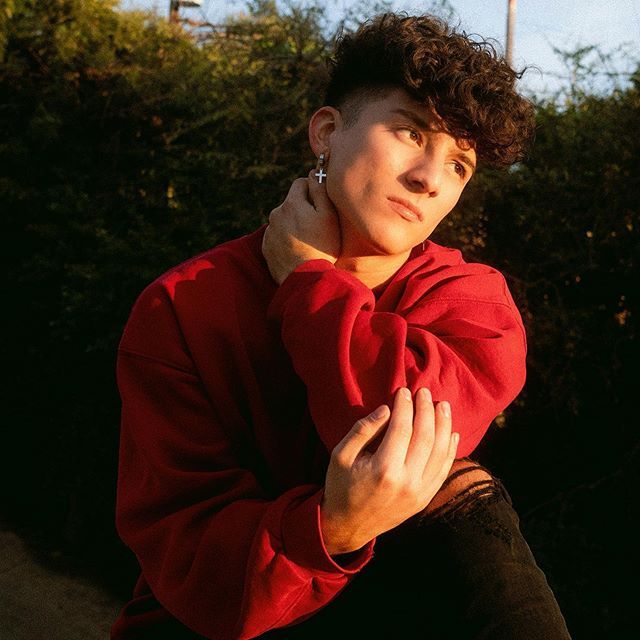Cancel Culture
Tik Tok influencer, Tony Lopez, is among a club of celebrities and influencers who have been cancelled for events and mistakes made in their past.
An innocent evening, falling asleep after spending a few hours on social media to see their fans interacting happily with them. All of this only for them to wake up with thousands of posts saying they are cancelled for something they had done years ago, before all of this popularity.
Cancel culture is a social media practice for when a celebrity or influencer does something bad and gets ‘punished’ by both their fans and bystanders. Oftentimes, the punishment involves mass unfollowing by followers and considerably crude remarks. When an influencer gets cancelled, they are forced into a period of self-reflection, giving thought to the past mistakes they are receiving hate for. Junior, Isabella Daniels, feels like cancel culture has good intentions, but the way people handle it makes the concept bad.
“In my opinion, cancel culture does more bad than good sometimes. It’s intentions are to address people’s wrong doing in hopes that they are held accountable, but what really ends up happening is instead of being educated about their mistakes, people who get canceled are basically humiliated and end up being bullied or harassed online long after their mistake was made. I think people who make mistakes that are ‘cancel worthy’ should be educated, but not bullied off of social media platforms or humiliated to the point where they don’t want to make content anymore,” stated Daniels.
Cancel culture can affect any celebrity or influencer with a noticeable following, but the most important aspect of the event is not the period of isolation for fans. The aftermath of being cancelled and how the celebrity responds is what matters most to audiences. Many people believe that there is a double standard that is evident following a person’s being cancelled. Things like their content, the amount of followers, and looks seem to play into how people react. Junior, Mikaley Applewhite, believes that the way a person looks plays a big role in cancel culture.
“Appearance for sure takes part in cancel culture. If someone who was very attractive and has a large fanbase were to do something, they’d most likely get off a lot easier than if it were someone with a smaller fanbase and more ‘average’ looking in the same situation,” stated Applewhite.
After they get cancelled, thousands of hate comments remain for celebrities to filter through. While there remains a significant number of people who oppose leaving hate comments, there are still some people throughout all social media platforms who are willing to throw hateful words and threats around. Junior, Jomana Al-Aboudi, believes that everyone makes mistakes and it is important to realize that influencers and celebrities are humans, too.
“Getting canceled affects someone’s life by destroying their mental health and making them think that they are bad people, when in reality, they just made a mistake, which everybody makes. They can either decide to learn from it or be immature and pretend like they didn’t do anything,” stated Al-Aboudi.
As times change, people are beginning to acknowledge issues that have been pushed down for a very long time. People are starting to take certain issues more seriously, which emphasizes the idea of cancel culture. Daniels believes that ignorance is the main cause of someone getting cancelled.
“Some things that people can be canceled for include racism, homophobia, transphobia, sexism, xenophobia etc. All of these things, I believe, we need to expose and hold people accountable for, but with the current methods of exposing these types of people, no one is actually learning anything,” stated Daniels.
A lot of people believe that cancel culture is a modern concept, but the concept of cancelling someone was around long before its popularity came on social media. However, the way a celebrity or important figure were to get cancelled has changed over time. AP English teacher, Lisa Cole, believes that cancel culture is a good concept to have in society.
“We’ve always had some form of cancel culture long before the Internet. I think it’s a good thing insofar, as the reason we’re ‘canceling’ is based on fact and is justified. Someone like Bill Cosby or Harvey Weinstein are examples of immoral men that should be ostracized. People posting racist, sexist, or homophobic ideas on social media should be checked and or canceled. Maybe not forever, people change and make mistakes. I think it’s society’s way of placing moral checks on acceptable or unacceptable behaviors,” stated Cole.
Cancel culture has helped many people learn lessons about issues that happen daily. However, the way people are forced to learn it through cancelling an influencer or celebrity can be seen as very toxic by a bystander who doesn’t know what is happening. In today’s society, it is important to note that education is key, regardless of the situation.


